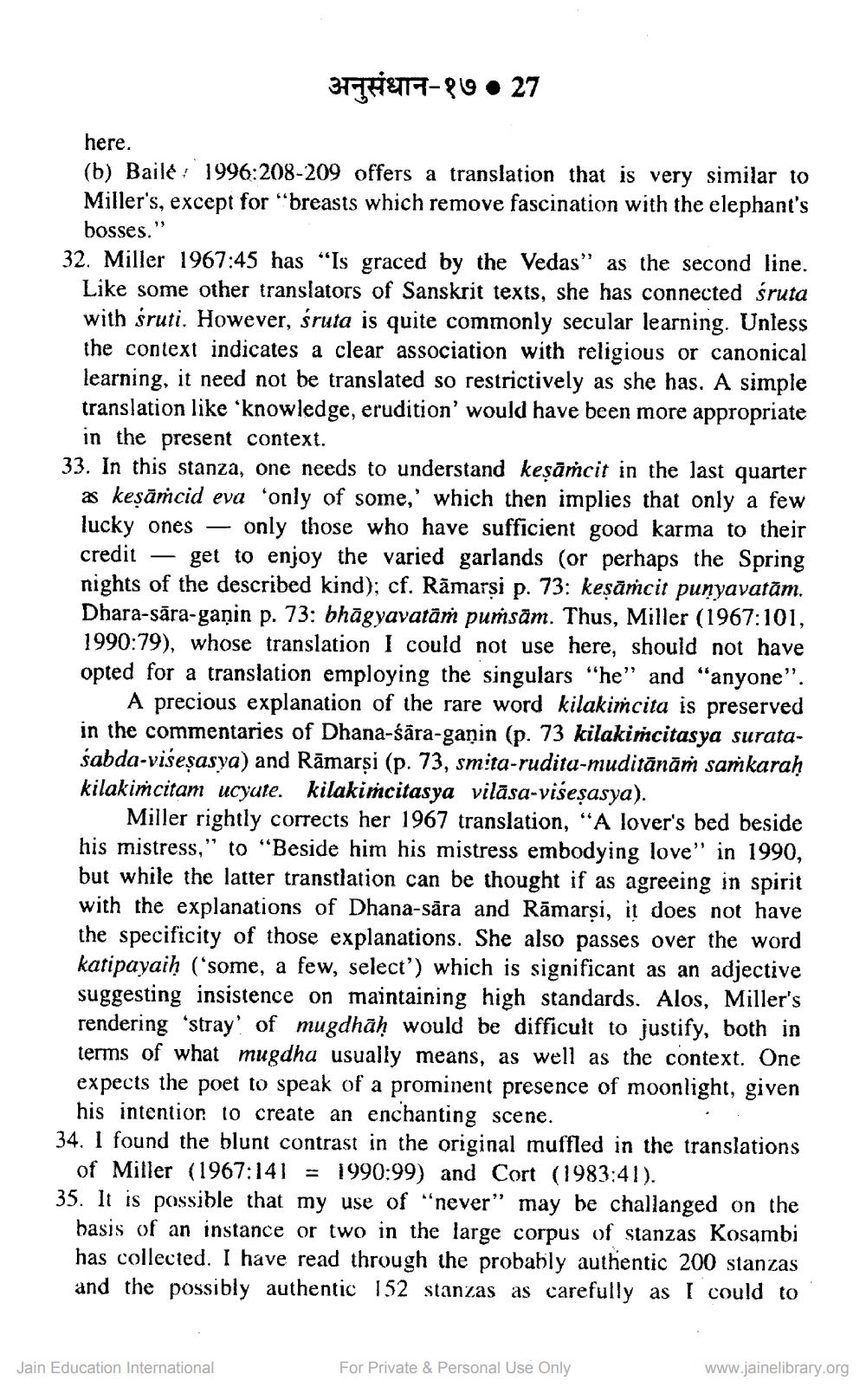________________
TTFT-860 • 27
here. (b) Bailé: 1996:208-209 offers a translation that is very similar to Miller's, except for "breasts which remove fascination with the elephant's bosses." 32. Miller 1967:45 has “Is graced by the Vedas” as the second line.
Like some other translators of Sanskrit texts, she has connected śruta with śruti. However, śruta is quite commonly secular learning. Unless the context indicates a clear association with religious or canonical learning, it need not be translated so restrictively as she has. A simple translation like 'knowledge, erudition' would have been more appropriate
in the present context. 33. In this stanza, one needs to understand kesāṁcit in the last quarter
as kesāṁcid eva 'only of some,' which then implies that only a few lucky ones — only those who have sufficient good karma to their credit – get to enjoy the varied garlands (or perhaps the Spring nights of the described kind); cf. Rāmarși p. 73: keşāṁcit punyavatām. Dhara-sāra-gañin p. 73: bhāgyavatāṁ pumsām. Thus, Miller (1967:101, 1990:79), whose translation I could not use here, should not have opted for a translation employing the singulars "he" and "anyone”.
A precious explanation of the rare word kilakimcita is preserved in the commentaries of Dhana-śära-ganin (p. 73 kilakiṁcitasya suratasabda-višeșasya) and Rāmarsi (p. 73, smita-rudita-muditānāṁ saskaraḥ kilakimcitam ucyute. kilakimcitasya vilāsa-višeșasya).
Miller rightly corrects her 1967 translation, "A lover's bed beside his mistress,” to “Beside him his mistress embodying love" in 1990, but while the latter translation can be thought if as agreeing in spirit with the explanations of Dhana-sāra and Rāmarși, it does not have the specificity of those explanations. She also passes over the word katipayaiḥ (“some, a few, select') which is significant as an adjective suggesting insistence on maintaining high standards. Alos, Miller's rendering ‘stray? of mugdhāḥ would be difficult to justify, both in terms of what mugdhu usually means, as well as the context. One expects the poet to speak of a prominent presence of moonlight, given his intention to create an enchanting scene 34. I found the blunt contrast in the original muffled in the translations
of Miller (1967:141 = 1990:99) and Cort (1983:41). 35. It is possible that my use of "never" may be challanged on the
basis of an instance or two in the large corpus of stanzas Kosambi has collected. I have read through the probably authentic 200 stanzas and the possibly authentic 152 stanzas as carefully as I could to
Jain Education International
For Private & Personal Use Only
www.jainelibrary.org




